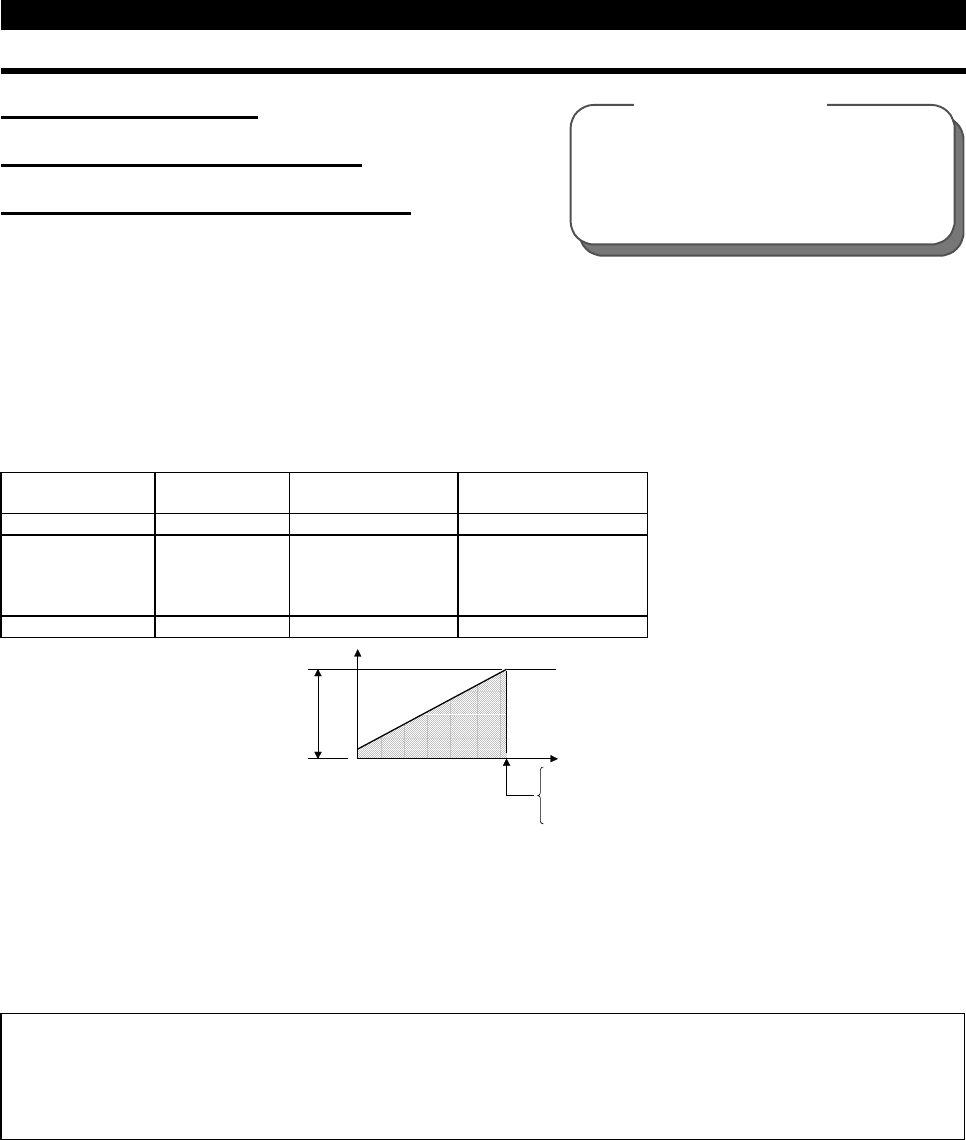
PARAMETERS
68
4.2.3 Base frequency, base frequency voltage (Pr. 3, Pr. 19, Pr. 47)
Pr. 3 "base frequency"
Pr. 19 "base frequency voltage"
Pr. 47 "second V/F (base frequency)
Used to adjust the inverter outputs (voltage, frequency) to the motor rating.
#
When running a standard motor, generally set the rated motor frequency. When running the motor using
the commercial power supply-inverter switch-over, set the base frequency to the same value as the power
supply frequency.
#
If the frequency given on the motor rating plate is "50Hz" only, always set to "50Hz".
Leaving it as "60Hz" may make the voltage too low and the torque less, resulting in overload tripping. Care
must be taken especially when Pr. 14 "load pattern selection" = 1.
Parameter
Number
Factory
Setting
Setting Range Remarks
3 60Hz
〈
50Hz
〉
0 to 120Hz
19 9999
〈
8888
〉
0 to 1000V,
8888, 9999
8888: 95% of power
supply voltage
9999: Same as power
supply voltage
47 9999 0 to 120Hz, 9999 9999: Function invalid
Pr.19
Pr.3
Pr.47
Output frequency (Hz)
Output voltage
<Setting>
•
Use Pr. 3 and Pr. 47 to set the base frequency (rated motor frequency).
•
Pr. 47 "Second V/F (base frequency)" is valid when the RT signal is on. (Note 3)
•
Use Pr. 19 to set the base voltage (e.g. rated motor voltage).
Note: 1. Set 60Hz in Pr. 3 "base frequency" when using a constant-torque motor.
2. When "2" (5-point flexible V/F characteristics) is set in Pr. 71, the Pr. 47 setting is made invalid.
3. The RT signal serves as the second function selection signal and makes the other second
functions valid. Refer to page 138 for Pr. 180 to Pr. 186 (input terminal function selection).
Pr. 14 "load pattern selection"
Pr. 71 "applied motor"
Pr. 180 to Pr. 186 (input terminal
function selection)
Related parameters


















